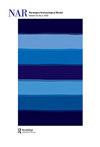测定丹麦古代墓葬的年代——揭示有问题的古代木炭
IF 1.1
3区 历史学
0 ARCHAEOLOGY
引用次数: 0
摘要
丹麦国家博物馆和哥本哈根大学地理系合作开展了一个项目,调查中世纪早期教堂附近的墓地。其目的是确定在维京时代晚期向基督教转变的过程中,邪教场所可能存在的连续性。来自18个土墩的木炭样本进行了放射性碳测年,但结果显示它们比预期的要古老得多。对已知年龄的土丘进行的控制年代测定证实,土丘填充物中的木炭至少比土丘本身早3000年。由于木炭可以在表层土壤中存活数千年,尽管有耕作、生物扰动和霜冻,它也可能在土墩建设中使用的草或石楠草的木炭池中占主导地位。因此,文章得出结论,木炭不能用于可靠地测定用草皮建造的考古特征的年代,在选择测定考古特征的材料时,重要的是要意识到可能存在非常古老的木炭,即使那些材料不会受到早期考古时期材料的影响。本文章由计算机程序翻译,如有差异,请以英文原文为准。
Dating Ancient Burial Mounds in Denmark – Revealing Problematic Ancient Charcoal
The National Museum of Denmark and the Department of Geography at the University of Copenhagen have collaborated on a project investigating burial mounds near early Medieval churches. The aim was to identify a possible continuity in cult sites across the shift to Christianity in the late Viking Age. Charcoal samples from 18 mounds were radiocarbon dated but the results showed they were far older than expected. Control dating undertaken on burial mounds of known age confirmed that charcoal in the mound fill can at least be up to 3000 years older than the mound itself. As charcoal can survive in the surface soil layer for millennia, in spite of ploughing, bioturbation and frost, it may also dominate the charcoal pool of the grass or heather turfs used in the mound construction. Therefore, the article concludes, charcoal cannot be used to securely date archaeological features built with turfs and it is important to be aware of the possible presence of very old charcoal when selecting material for dating archaeological features, even those which otherwise would be judged unaffected by material from earlier archaeological periods.
求助全文
通过发布文献求助,成功后即可免费获取论文全文。
去求助
来源期刊

Norwegian Archaeological Review
ARCHAEOLOGY-
CiteScore
2.10
自引率
0.00%
发文量
13
期刊介绍:
Norwegian Archaeological Review published since 1968, aims to be an interface between archaeological research in the Nordic countries and global archaeological trends, a meeting ground for current discussion of theoretical and methodical problems on an international scientific level. The main focus is on the European area, but discussions based upon results from other parts of the world are also welcomed. The comments of specialists, along with the author"s reply, are given as an addendum to selected articles. The Journal is also receptive to uninvited opinions and comments on a wider scope of archaeological themes, e.g. articles in Norwegian Archaeological Review or other journals, monographies, conferences.
 求助内容:
求助内容: 应助结果提醒方式:
应助结果提醒方式:


